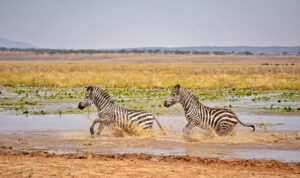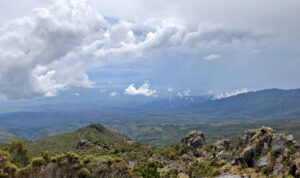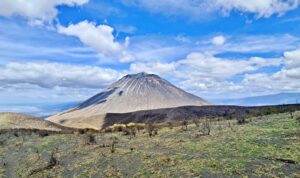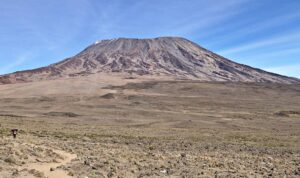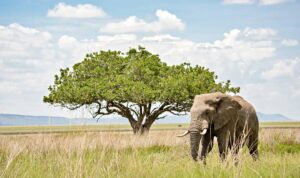APERÇU
C'est une région insulaire souveraine de Tanzanie. Elle est composée de péninsules insulaires situées dans l'océan Indien, au large de la côte principale de la Tanzanie continentale. Il y a deux îles principales Île de Pemba et Île d'Unguja ainsi que d'autres îles plus petites. La capitale de cette île est Zanzibar City, situé à Unguja. C'est également à Unguja que se trouve le centre historique, Stone Town le site du patrimoine mondial.
UNGUJA
L'île d'Unguja, communément appelée "Zanzibar", est la plus grande des deux îles principales et est considérée comme le cœur de l'économie de Zanzibar. Elle offre une abondance de destinations touristiques allant de la plongée sous-marine aux ateliers de souvenirs culturels, en passant par les stations balnéaires les plus luxueuses et les plus vierges.
PEMBA
L'île de Pemba se trouve dans la partie nord de l'île d'Unguja. Le tourisme et les autres formes de croissance économique n'y sont pas aussi florissants, ce qui laisse à l'île de Pemba un environnement naturel intact, avec des plages vierges et une vaste zone de conservation contenant des forêts.
ACTIVITÉS ÉCONOMIQUES
Les principales industries de Zanzibar sont les épices et le tourisme sans oublier l'industrie de la pêche. Cette île est célèbre pour la production de clous de girofle, de cannelle et de poivre noir. La production d'épices permet à cette belle île d'être qualifiée deL'île aux épices ?. Ces épices sont utilisées quotidiennement dans la cuisine de Zanzibar, vous pouvez donc les trouver partout dans les marchés locaux.
Continuer la lecture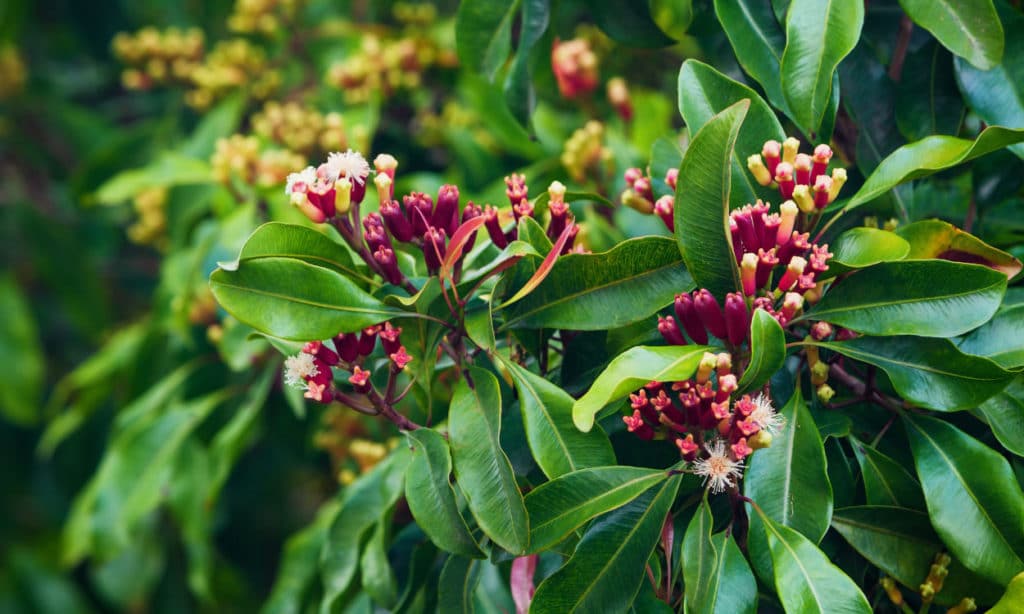
Le tourisme est un autre pilier de l'île. Il est le principal générateur de revenus sur l'île. Le gouvernement de Zanzibar joue un rôle important dans la promotion de l'industrie du tourisme, ce qui a conduit à un grand flux de touristes sur l'île, car c'est l'un des endroits avec les meilleures plages de l'océan Indien.
L'écosystème marin de Zanzibar est un aspect très important de l'industrie de la pêche et de la culture des algues. L'écosystème de culture d'algues fournit un environnement propice à la reproduction des poissons. Il fait office de zone de refuge pour la population de poissons de l'océan Indien.
EMPLACEMENT
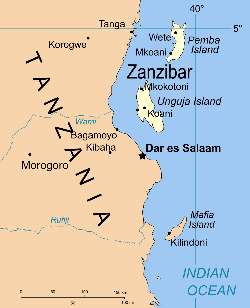
Zanzibar est l'une des îles de l'océan Indien, située sur la côte est de la Tanzanie. L'île est séparée de la Tanzanie continentale par l'océan Indien. Son île principale est Unguja, familièrement connue sous le nom de Zanzibar, avec Stone Town, communément appelée le centre historique du commerce. Stone Town a une influence majeure sur les cultures swahilie et islamique. L'ensemble de son emplacement est un lieu idéal pour des vacances à la plage.
PEUPLE DE ZANZIBAR
Les premiers groupes ethniques permanents à résider sur l'île étaient les ancêtres bantous Tumbatu et les ancêtres bantous Hadimu. Ces personnes sont arrivées ici en provenance des zones des Grands Lacs d'Afrique. Actuellement, l'île est habitée par presque toutes les tribus de Tanzanie, bien que les principaux groupes ethniques soient les Swahili, les locuteurs bantous, les Arabes, les Perses et les Indiens.
RELIGION
La majorité de la population de Zanzibar est entièrement musulmane (99%) avec une petite minorité de chrétiens. Les autres religions présentes sont l'hindouisme, les jaïns et les sikhs. Les principaux lieux de culte sur cette île sont donc les mosquées, les églises chrétiennes et les temples pour les hindous et les sikhs.
GOUVERNANCE
En tant que région souveraine insulaire, Zanzibar possède son propre gouvernement. Le gouvernement de cette île est communément appelé Le gouvernement révolutionnaire de Zanzibar. Le gouvernement de Zanzibar est composé des autorités suivantes Conseil révolutionnaire et La Chambre des représentants. Le gouvernement de l'unité nationale de Zanzibar est dirigé par le président.
ACTIVITÉS TOURISTIQUES
Zanzibar propose de nombreuses activités touristiques allant de la plongée sous-marine aux ateliers de souvenirs culturels, en passant par les stations balnéaires les plus luxueuses et les plus vierges. Ces attractions offrent un large éventail d'activités dont on peut profiter sur les îlots de Zanzibar.
VISITE DE LA VILLE DE PIERRE
Il est enchanteur d'explorer ce site historique et classé au patrimoine mondial de l'UNESCO. Stone Town est un lieu très dynamique où vous trouverez un mélange de cultures arabe, africaine, indienne et européenne cohabitant confortablement. En vous promenant dans les rues labyrinthiques, trop étroites pour le passage des voitures, vous rencontrerez des mosquées, des églises, des temples et des bâtiments historiques anciens.
Cette visite vous permettra de vous familiariser avec la géographie, l'histoire, l'architecture et les cultures de Stone Town ;
- Cimetière de Makusurani. C'est ici que sont enterrés les anciens souverains de nombreuses îles.
- Maison des merveilles. Le premier bâtiment de l'île à avoir des lumières électriques.
- Salle de bains persane Hamamni et Kidichi. Les premières toilettes publiques de l'île.
- Musée du Mémorial de la Paix. Un musée historique national retraçant la longue histoire de l'île
- Ruines de Dunga. Les ruines d'un palais construit en 15th siècle par les souverains de cette époque.

Vous pouvez discuter avec votre guide de la visite des jardins de Forodhani. Ils valent vraiment la peine d'être visités, surtout la nuit, lorsqu'ils s'animent et sont plus actifs, car ils sont connus pour être le meilleur marché de street food de l'île.
SAFARI BLUE TOUR
L'excursion Safari Blue est une excursion d'une journée complète qui comprend la baignade et la plongée avec tuba, la relaxation sur les bancs de sable, la dégustation de fruits tropicaux et de fruits de mer frais pour le déjeuner. Il vous donne l'occasion d'apprendre l'histoire du grand baobab, de vous baigner dans la piscine naturelle, de visiter et de faire des achats dans les boutiques de souvenirs de Kwale.
Cette merveilleuse journée commence par une navigation autour des mangroves et une plongée en apnée le long de la baie de Menai. Cette baie est l'une des meilleures baies de récifs coralliens des îles. Le monde sous-marin de cette baie est incroyablement époustouflant. Vous serez témoin d'innombrables poissons colorés et d'autres créatures marines qui survivent parmi les récifs coralliens et les plantes sous-marines qui forment en général l'écosystème des récifs coralliens dans la mer.
Après avoir admiré la vie marine, vous pourrez vous détendre et commencer à apprécier le barbecue de fruits de mer frais. Le barbecue de cet endroit offre un large éventail et un goût authentique de fruits de mer comme la pieuvre, le homard, le calmar, le calmar et d'autres espèces de poissons. N'oubliez pas de terminer votre repas avec des fruits frais comme des bananes, des pastèques, des ananas et des mangues. Ce sera la meilleure journée d'aventure de votre séjour dans les îles, et vous comprendrez la véritable signification de "...".Bleu safari ?
TOUR DOLPHIN
Cette excursion se déroule dans la partie sud des îles, dans un endroit appelé le village de pêcheurs de Kizimkazi. Il y a beaucoup de dauphins vivant dans leur habitat naturel et heureux, et il est donc très possible de les apercevoir dans leur meilleur état.
C'est le meilleur endroit pour observer ces créatures aquatiques nageant dans leur habitat naturel. C'est aussi le meilleur endroit pour nager librement avec les dauphins, bien qu'il soit essentiel de prendre des précautions. Ce sont des animaux sauvages comme les autres et ils peuvent se transformer à tout moment s'ils sont dérangés. Il existe deux principaux types de dauphins à cet endroit : les dauphins à nez en bouteille et les dauphins à bosse.
En plus de passer du temps avec les dauphins, cette excursion vous permettra de découvrir la beauté du village de Kizimkazi. C'est un endroit très agréable que de nombreux touristes visitent pour explorer le village et visiter l'ancienne mosquée, qui est l'un des sites historiques que l'on trouve ici. Le village offre des attractions naturelles et culturelles, il vaut donc vraiment la peine d'être visité.
Le meilleur moment pour cette visite est tôt le matin ou l'après-midi, en fonction des conditions météorologiques du jour.
PRISON ISLAND AND NAKUPENDA SANDBANK TOUR
Nakupenda est un mot swahili qui signifie "je t'aime". Cette magnifique plage de sable est située au large de Stone Town. Un trajet de 20 à 30 minutes à bord d'un bateau local vous mènera à votre destination, la plage de Nakupenda.
Cette excursion d'une journée complète est l'occasion idéale de profiter du banc de sable de Nakupenda. Une fois sur le banc de sable, on vous fournira des équipements de plongée en apnée tels que des masques. Le monde sous-marin du banc de sable de Nakupenda est incroyablement spectaculaire. C'est un endroit où l'on trouve une faune ornithologique brillante, du sable très blanc et une eau vitreuse et cristalline. Il y a d'innombrables poissons colorés et d'autres créatures marines qui survivent parmi les récifs coralliens et les plantes sous-marines qui forment ensemble l'écosystème des récifs coralliens marins. Vous pourrez vous détendre sur le banc de sable et déguster des fruits tropicaux pendant ou après la plongée en apnée.

Après avoir profité de la plongée libre, vous aurez le temps de couronner votre journée en explorant Prison Island. L'ancienne prison des esclaves existe toujours et sert désormais d'abri aux tortues géantes. La visite de cet endroit vous donnera l'occasion d'explorer et de nourrir les tortues si vous le souhaitez.
Après avoir profité de votre journée, vous pourrez admirer un large éventail de coraux colorés et de poissons tropicaux des îles dans un buffet avant de prendre un bateau pour retourner à Stone Town.
VISITE DE LA FORÊT DE JOZAN
La forêt est également connue sous le nom de Parc national de la baie de Chwaka. C'est le seul parc national de ces îles. Bien qu'il soit de petite taille, il est prolifique avec d'étonnants arbres hauts comme le ciel, une forêt épaisse de mangroves et les arbres médicinaux de la jungle sont nombreux ici.

Cette forêt abrite également des singes rouges endémiques rares, des espèces d'antilopes endémiques, le léopard de Zanzibar, des singes bleus, des caméléons, des mangoustes, des hyrax arboricoles, des cochons de brousse, des civettes, différentes espèces de papillons et différentes espèces d'oiseaux.
Elle est également considérée comme une pharmacie naturelle, une source incroyable de remèdes naturels. Chaque arbre ou plante de cette forêt a une valeur médicinale qui guérit quelque chose. Votre guide expérimenté vous conduira à travers les sentiers de la forêt et vous donnera des informations sur l'utilisation des plantes.
Votre aventure vous mènera à travers l'habitat de la mangrove, où vous pourrez facilement apercevoir quelques poissons et crabes dans leur habitat naturel avant de retourner à votre hôtel. L'excursion dans la forêt de Jozani est une aventure à couper le souffle, riche en expériences de vie sauvage sur l'île.
ÎLE DE MNEMBA
L'île est située dans la partie nord-est de l'île de Zanzibar. Elle est entourée de récifs coralliens massifs. C'est l'un des sites de plongée en apnée les plus populaires de l'île. Il est également appelé "la capitale des poissons tropicaux" en raison de la présence de nombreuses variétés d'espèces de poissons. Parmi les espèces de poissons uniques présentes sur l'île de Mnemba, citons les raies pastenagues, les poissons lions, les poissons grenouilles, les poissons feuilles et les poissons zèbres.
Votre excursion d'une journée complète vous permettra d'explorer ;
- Lieu de nidification des tortues de mer vertes, espèce menacée.
- Baleines à bosse
- Requins-baleines
- Les oiseaux de rivage migrateurs et résidents se nourrissent et se perchent sur l'île.
- De nombreuses espèces de poissons de récifs coralliens.
CROISIÈRE EN BOUTRE AU COUCHER DU SOLEIL
La croisière en boutre au coucher du soleil est l'une des activités les plus agréables et les plus célèbres à ne pas manquer lors d'un séjour sur les îles de Zanzibar. Cette excursion à couper le souffle peut être vécue à Stone Town et sur la plage de Nungwi. La croisière au coucher du soleil part de Stone Town en fin d'après-midi et longe la côte en direction de la côte ouest sur un boutre traditionnel en bois. C'est vraiment romantique et merveilleux de naviguer avec ce boutre arabe traditionnel.
Le parcours de navigation part du jardin Forodhani, sur le bord de mer, en face de Stone Town. Vous naviguez le long des côtes historiques et fascinantes tout en observant le coucher du soleil sur l'horizon occidental. Lorsque vous observez le soleil depuis ce point, vous voyez qu'il s'enfonce dans l'océan Indien. Lorsque le soleil disparaît à l'horizon, il laisse ses rayons derrière lui, peignant la ville de ses couleurs pastel étonnantes. La voile prend le tour la maison des merveilles, le musée du palais, l'ancien dispensaire, la maison des coutumes et d'autres encore.
Avec le bruit de l'eau qui clapote sous vos pieds, continuez à profiter de la croisière paisible avant le crépuscule. Au crépuscule, notre voyage vers la ville de pierre commence sous l'influence des lanternes d'ouragan faiblement éclairées.
Cette visite est l'une des expériences inoubliables des excursions à Zanzibar. Couronnez votre journée en vous relaxant parmi les grands coussins de style persan et les mousselines fluides.
SPICE TOUR
L'île de Zanzibar offre une variété d'attractions allant du bain de soleil sur la plage à la visite des épices. Cette île offre sa propre marque d'attractions touristiques que l'on trouve rarement dans de nombreux endroits le long de l'océan Indien. L'un des circuits les plus intéressants proposés est le Zanzibar Spice Tour.
La visite des plantations d'épices à Zanzibar sera certainement l'une des plus mémorables. Elle vous donnera l'occasion de découvrir la large gamme intéressante et assortie d'épices et de fruits qui sont cultivés sur cette île. Vous aurez également l'occasion de les goûter, de les toucher et de les sentir. Pouvoir apprendre et voir les différentes herbes, épices et espèces rares de plantes qui poussent à Zanzibar est assez intriguant car vous n'avez peut-être jamais entendu parler ou vu certaines d'entre elles auparavant.
Vous sentirez et goûterez des épices, des herbes et des fruits tropicaux tels que le clou de girofle, la citronnelle, la noix de muscade, la cannelle, le curcuma, la vanille, la noix de coco, la papaye, le piment, le poivre noir, les fruits du jacquier, la cardamome, le manioc et l'orange. Comme il s'agit d'une visite guidée, attendez-vous à ce que le guide vous donne des explications détaillées et instructives sur ces épices et ces plantes, notamment sur leur utilisation et leur mode de culture.
Après la visite, vous profiterez d'un déjeuner traditionnel swahili à la ferme. C'est ici que vous apprendrez le vrai goût et les différentes façons d'utiliser les épices pour créer les différents goûts et saveurs que l'on retrouve dans différents plats. Nous terminons la visite par un arrêt à un stand d'épices vendant des épices fraîchement emballées.
VISITE DE L'ÎLE DE PEMBA
L'île de Pemba est une autre partie de l'île de Zanzibar. C'est un nom arabe qui se traduit par "l'île verte", compte tenu du paysage luxuriant de collines végétales épaisses, entrecoupées de plantations de girofliers. Ces collines sont séparées des girofliers secrets de l'île et des plages de sable blanc par une ceinture de forêt de mangrove dense. La préhistoire de Pemba reste voilée de mystère ; car il est probable que ses premiers habitants soient arrivés du continent africain il y a plusieurs années. L'île est devenue une étape clé sur la route commerciale de la côte swahilie.



